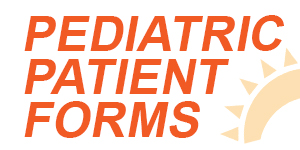Occipital Neuralgia is a specific type of headache that is considered to be relatively rare among the general population. But what exactly is occipital neuralgia? Are there risk-free treatments that can address the condition? In this article, we will answer these questions and more to provide you an overview of this troublesome affliction.
A Basic Overview of Occipital Neuralgia
To start, it might be helpful to break down the name of the ailment in question. In medicine, the word “occipital” refers to the back of the head. For example, we have an occipital bone on the back of our skull. Furthermore, the occipital lobe of our brain is the part of our nervous system that is primarily responsible for vision.
“Neuralgia”, on the other hand, generally refers to a problem with the nerves of the body. The term usually indicates that there is compression or irritation of a nerve.
Therefore, when we combine the terms to form the condition of Occipital Neuralgia, we find that the occipital nerve (the nerve running up the back of our skull) is irritated. When this nerve is damaged in some way, we feel pain in the area the nerve innervates or supplies.
Diagnosing Occipital Neuralgia
While there are some blood tests and imaging studies that can help clinicians rule in a diagnosis of Occipital Neuralgia, these measures are rarely necessary. Most practitioners can diagnose Occipital Neuralgia simply by asking the patient questions and performing a physical examination. One such question could be as simple as: “do you have pain in the back of your head”?
Specifically, by pressing in a few areas in the back of the head and performing a thorough patient interview, diagnosing Occipital Neuralgia is fairly easy to do.
Symptoms of Occipital Neuralgia
Patients may experience various different symptoms when dealing with Occipital Neuralgia. However, the vast majority of these individuals will suffer from pain in the back of the head, muscle tightness in the neck and shoulders, and headaches.
Causes of Occipital Neuralgia
There are many proposed causes of Occipital Neuralgia. That being said, it seems as if many cases of this disorder are due to tight, stiff neck and shoulder muscles. When these structures are excessively tight, they can put pressure on the occipital nerve.
In other, more rare instances, Occipital Neuralgia may be caused by tumors, infection, or metabolic diseases such as diabetes.
During the evaluation and examination, the clinician will aim to figure out what caused the issue in the first place so that the appropriate treatment can be utilized.
Treating Occipital Neuralgia
Much like any medical condition, there are a variety of treatment options available for Occipital Neuralgia. Some clinicians will prescribe medications to help ease the pain and calm the involved nerves. Others may perform massages and treatments to loosen the muscles surrounding the damaged nerve in question.
In some cases, these treatments may work well for patients. However, chiropractic care offers treatment options that can help to correct the underlying issues causing Occipital Neuralgia.
Chiropractic Care and Occipital Neuralgia
Chiropractors are concerned with addressing the deeper causes of disease, not simply the surface-level symptoms. In order to address these deeper issues, chiropractors will often perform spinal manipulations to realign the spine.
After a successful chiropractic adjustment, patients often experience decreased pain, more relaxed muscles, and better range of motion. All of these results can help patients move past symptoms of diseases such as Occipital Neuralgia so that they can return to their lives.
If you’ve been experiencing painful headaches and aren’t sure what to do, stop in and see your Parker chiropractor at Awaken Chiropractic. Book your appointment today.






